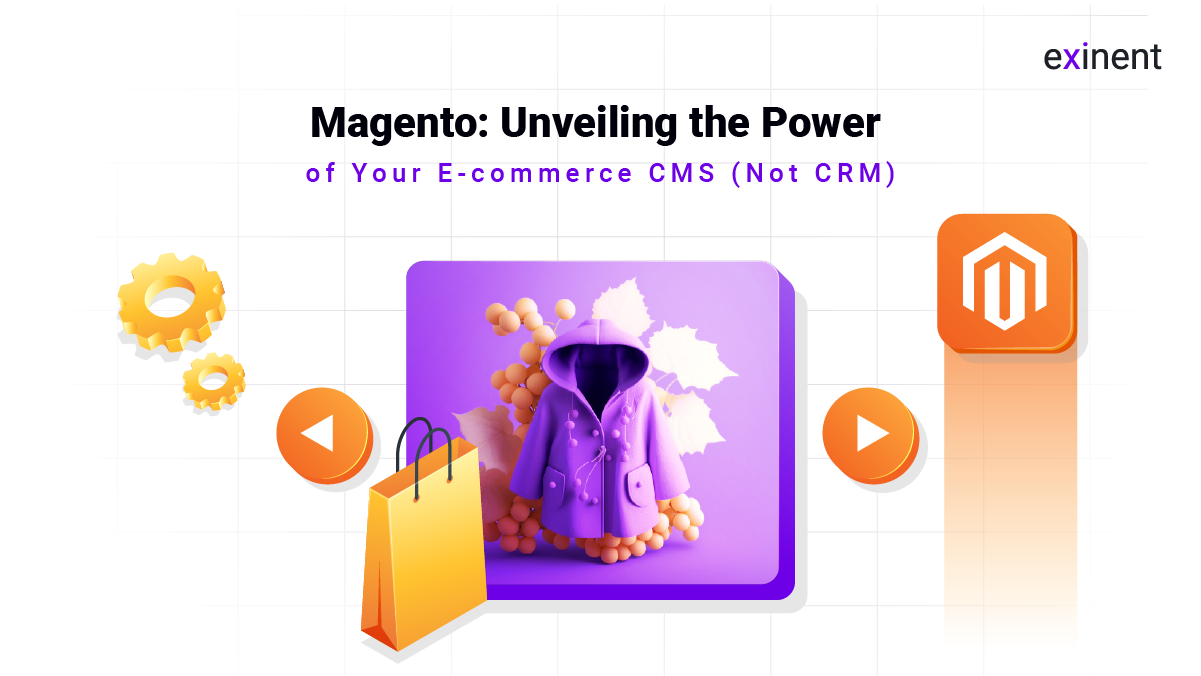
In the realm of e-commerce, building a captivating and functional online store is paramount for success. Magento stands out as a powerful platform, but a common question arises: is Magento a CRM or CMS?
Understanding the Distinction: CRM vs. CMS
CRM (Customer Relationship Management) software focuses on fostering customer interactions and relationships. It streamlines tasks like sales pipeline management, lead nurturing, and customer service. Essentially, a CRM empowers you to manage the customer lifecycle effectively.
On the other hand, a CMS (Content Management System) serves a different purpose. It provides a platform to create, edit, and publish content on your website. A user-friendly CMS simplifies website management, allowing users with minimal technical expertise to update content and web pages.
Magento: The E-commerce CMS Powerhouse
Magento shines brightly as a feature-rich CMS specifically designed for e-commerce websites. While it offers some basic customer management functionalities, its core strength lies in content management capabilities tailored for online stores.
Here’s a glimpse into what Magento offers as a CMS:
- Intuitive Interface: A user-friendly interface empowers administrators to effortlessly manage product information, inventory, and website content, even without extensive coding knowledge.
- Content Creation and Management: Craft compelling product descriptions, captivating landing pages, informative blog posts, and more – all within the Magento platform.
- Customization and Design: Magento offers a plethora of themes and templates to personalize the look and feel of your online store. For advanced customization, it integrates seamlessly with custom development.
- SEO Optimization: Magento boasts built-in SEO features to enhance your store’s search engine ranking and organic visibility.
- Omnichannel Marketing: Reach your target audience across various touchpoints by integrating your Magento store with marketing automation tools.
Why Magento Isn’t a Full-fledged CRM
While Magento offers basic customer management features like customer profiles and order history, it doesn’t encompass the comprehensive functionalities of a dedicated CRM system. For instance, features like lead scoring, advanced sales pipeline management, and in-depth customer segmentation are typically absent in Magento’s core offering.
The Perfect Marriage: Magento and CRM Integration
The beauty of Magento lies in its expandability. Several robust CRM solutions integrate seamlessly with Magento, bridging the gap in customer management functionalities. This integration empowers you to:
- Synchronize Customer Data: Ensure seamless flow of customer information between your Magento store and CRM, fostering a unified customer view.
- Enhanced Customer Insights: Gain deeper customer understanding through comprehensive data analysis provided by the CRM.
- Personalized Marketing Campaigns: Leverage customer data to craft targeted marketing campaigns that resonate with your audience.
- Streamlined Sales Process: Enhance the sales pipeline by managing leads and opportunities within the CRM and integrating them with your Magento store.
How Exinent Magento Development Company Can Help
Exinent, a leading Magento development company, possesses the expertise to unlock the full potential of Magento as your e-commerce CMS. Our team of skilled developers can craft a customized Magento solution that perfectly aligns with your unique business needs, while seamlessly integrating your preferred CRM system for a powerful e-commerce experience.
In Conclusion
Magento reigns supreme as a feature-rich CMS empowering you to build and manage a thriving online store. While it offers some customer management functionalities, it’s not a replacement for a dedicated CRM system. The magic lies in integrating Magento with a robust CRM to create a holistic e-commerce ecosystem that fosters customer relationships, drives sales, and propels your business forward.
